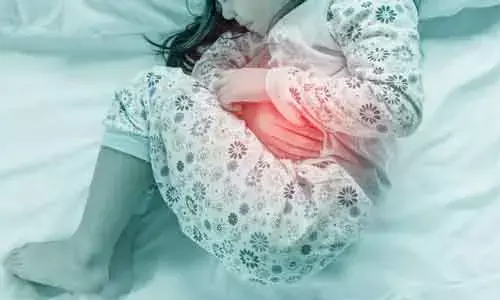- Home
- Medical news & Guidelines
- Anesthesiology
- Cardiology and CTVS
- Critical Care
- Dentistry
- Dermatology
- Diabetes and Endocrinology
- ENT
- Gastroenterology
- Medicine
- Nephrology
- Neurology
- Obstretics-Gynaecology
- Oncology
- Ophthalmology
- Orthopaedics
- Pediatrics-Neonatology
- Psychiatry
- Pulmonology
- Radiology
- Surgery
- Urology
- Laboratory Medicine
- Diet
- Nursing
- Paramedical
- Physiotherapy
- Health news
- Fact Check
- Bone Health Fact Check
- Brain Health Fact Check
- Cancer Related Fact Check
- Child Care Fact Check
- Dental and oral health fact check
- Diabetes and metabolic health fact check
- Diet and Nutrition Fact Check
- Eye and ENT Care Fact Check
- Fitness fact check
- Gut health fact check
- Heart health fact check
- Kidney health fact check
- Medical education fact check
- Men's health fact check
- Respiratory fact check
- Skin and hair care fact check
- Vaccine and Immunization fact check
- Women's health fact check
- AYUSH
- State News
- Andaman and Nicobar Islands
- Andhra Pradesh
- Arunachal Pradesh
- Assam
- Bihar
- Chandigarh
- Chattisgarh
- Dadra and Nagar Haveli
- Daman and Diu
- Delhi
- Goa
- Gujarat
- Haryana
- Himachal Pradesh
- Jammu & Kashmir
- Jharkhand
- Karnataka
- Kerala
- Ladakh
- Lakshadweep
- Madhya Pradesh
- Maharashtra
- Manipur
- Meghalaya
- Mizoram
- Nagaland
- Odisha
- Puducherry
- Punjab
- Rajasthan
- Sikkim
- Tamil Nadu
- Telangana
- Tripura
- Uttar Pradesh
- Uttrakhand
- West Bengal
- Medical Education
- Industry
Short antibiotics course as good as long one for pyelonephritis in children

Current national guidelines recommend treating children with pyelonephritis for 7 to 14 days of antibiotic therapy, yet data are lacking to suggest a more precise treatment duration.
Researchers have found that short-courses of antibiotic therapy may be as effective as prolonged-courses for the treatment of pyelonephritis in children in a new study. This implies that pyelonephritis resolves equally well in children undergoing short- versus long-course antibiotic therapy.The study has been published in JAMA Network Open .
The researchers conducted the study to compare the clinical outcomes of children receiving a short-course vs a prolonged-course of antibiotic treatment for pyelonephritis.
The retrospective observational study was conducted using inverse probability of treatment weighted propensity score analysis of data from 5 hospitals in Maryland between July 1, 2016, and October 1, 2018. The participants were children aged 6 months to 18 years with a urine culture growing Escherichia coli, Klebsiella species, or Proteus mirabilis with laboratory and clinical criteria for pyelonephritis.
The clinical courses of some 800 children diagnosed with pyelonephritis were evaluated retrospectively. Roughly two thirds had undergone prolonged-course treatment (more than 10 days) while the rest received short-course therapy (6 to 9 days).
The primary outcome of interest was treatment failure, as manifested by outpatient or emergency department visits, hospital readmissions, prolongation of the initial planned course, or death.
The researchers found that there was no difference in the odds of treatment failure for children prescribed a short-course of antibiotics (median 8 days) vs a prolonged-course of antibiotics (median 11 days).The incidence of treatment failure did not differ significantly between long-course (9.4%) and short-course (11.2%) groups. Moreover there was no difference in the incidence of later antibiotic-resistant infections.
The researchers concluded that a short-course antibiotic therapy may be as effective as prolonged-courses for children with pyelonephritis, and may mitigate the risk of future drug-resistant urinary tract infections. Additional studies are needed to confirm these findings.
For further reference log on to:
JAMA Netw Open. 2020;3(5):e203951. doi:10.1001/jamanetworkopen.2020.3951
Dr Kamal Kant Kohli-MBBS, DTCD- a chest specialist with more than 30 years of practice and a flair for writing clinical articles, Dr Kamal Kant Kohli joined Medical Dialogues as a Chief Editor of Medical News. Besides writing articles, as an editor, he proofreads and verifies all the medical content published on Medical Dialogues including those coming from journals, studies,medical conferences,guidelines etc. Email: drkohli@medicaldialogues.in. Contact no. 011-43720751


